The Benefits of Organic Cannabis Farming: Discover the Advantages Today

From eco-friendly practices to higher quality cannabis, there are many advantages to choosing organically grown cannabis. Not only does this promote environmentally-conscious farming, but it also offers health benefits to consumers. In this article, we will explore the benefits of organic cannabis farming, the cultivation techniques used, and how they contribute to a sustainable future for the cannabis industry.
Key Takeaways:
- Organic cannabis farming offers eco-friendly and sustainable cultivation practices
- Consuming organically grown cannabis may lead to health benefits for consumers
- Farming techniques such as companion planting and natural pest control are key in organic cannabis cultivation
Understanding Organic Cannabis Farming
Organic cannabis farming is a natural, sustainable method of cannabis cultivation that emphasizes the use of eco-conscious farming practices and avoids synthetic pesticides and fertilizers. In contrast to conventional cannabis cultivation, which can often rely heavily on chemicals and other artificial means of enhancing growth, organic cannabis farming prioritizes sustainability and maintaining the integrity of the surrounding ecosystem.
At its core, organic cannabis farming seeks to promote the health of the soil, which ultimately translates into higher-quality cannabis plants. Organic cannabis cultivation begins with the soil, which is often enriched with natural amendments such as compost, worm castings, and cover crops. By cultivating healthy soil through natural means, organic farmers are able to produce stronger, more resilient plants that are less susceptible to pest infestations and disease.
Organic cannabis farming also emphasizes the use of natural pest control methods, such as companion planting and biological controls, which utilize beneficial insects to keep harmful pests at bay. By avoiding synthetic chemicals and other harmful substances, organic cannabis farmers are able to promote the overall health of the ecosystem and ensure that the cannabis they produce is pure and free from harmful contaminants.
Overall, organic cannabis farming is a holistic approach to cannabis cultivation that prioritizes sustainability, quality, and purity. By embracing natural, eco-friendly practices, organic cannabis farmers are helping to ensure that the cannabis industry remains a sustainable and environmentally-conscious enterprise for years to come.

Environmental Benefits of Organic Cannabis Farming
Organic cannabis farming utilizes eco-friendly cultivation methods that help reduce environmental impact. Unlike conventional farming practices, organic cannabis farming techniques avoid the use of chemical pesticides and fertilizers, promoting the overall health of the environment.
One of the primary environmental benefits of organic cannabis farming is the preservation of soil health. Organic cultivation practices help to maintain soil fertility, promoting long-term sustainability for future crop growth. Additionally, organic farming methods help conserve water resources, reducing the overall water footprint of the cannabis industry.
This type of farming also promotes biodiversity, utilizing companion planting techniques to encourage the growth of natural pest control. This avoids the need for harmful chemicals, preserving the natural ecosystem of the surrounding area.
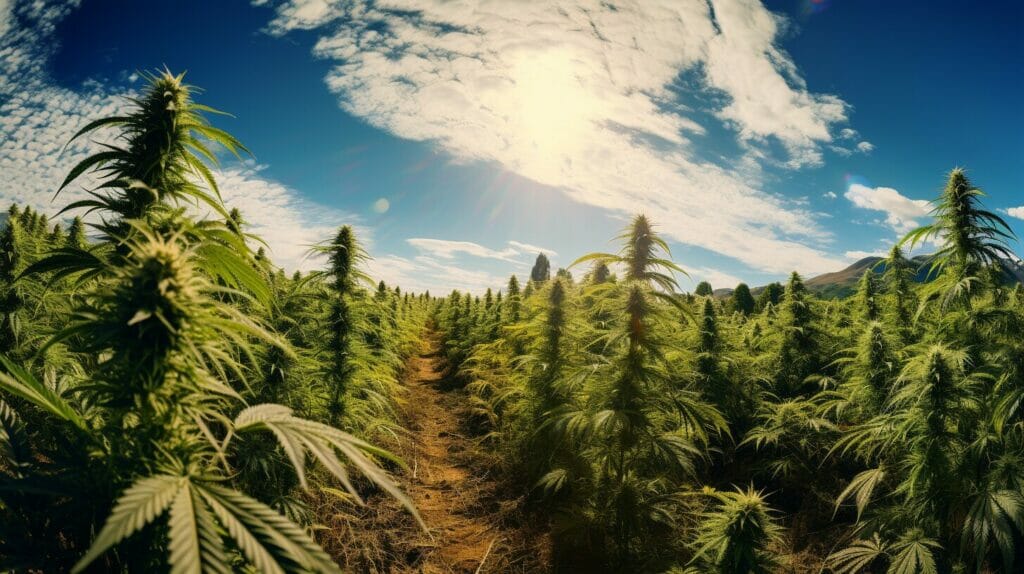
The emphasis on sustainable farming practices in organic cannabis farming not only reduces environmental impact but also contributes to the long-term success of the industry. By promoting environmentally friendly cultivation methods, we can ensure the continued growth and prosperity of the organic cannabis industry for generations to come.
Health Benefits of Organic Cannabis
Organic cannabis production methods can result in a purer and more natural product, potentially enhancing its therapeutic properties for consumers. The absence of synthetic fertilizers, pesticides, and other chemicals means that organic cannabis is a healthier option.
Several studies have suggested that organic cannabis farming may have benefits for human health. For example, a 2017 study published in the Journal of Cleaner Production found that organic cannabis contains higher levels of beneficial compounds such as terpenes and cannabinoids than conventionally grown cannabis.
| Health Benefits of Organic Cannabis: | |
|---|---|
| Improved respiratory health: | Organic cannabis is grown without the use of harmful chemicals that can contribute to respiratory problems when smoked or vaporized. |
| Reduced exposure to toxins: | The absence of synthetic fertilizers, pesticides, and other chemicals in organic cannabis reduces the risk of exposure to potentially harmful toxins. |
| Potential pain relief: | Some studies suggest that organic cannabis may have higher levels of therapeutic compounds, such as CBD, which can provide pain relief and other medicinal benefits. |
Overall, organic cannabis may offer several health benefits over conventionally grown cannabis due to its eco-conscious cultivation methods and chemical-free farming practices.

The Market and Industry of Organic Cannabis
The organic cannabis industry is rapidly growing, reflecting a shift in consumer preferences towards eco-friendly and sustainable cultivation practices. According to a report by Grand View Research, the global organic cannabis market size is expected to reach USD 9.86 billion by 2027, expanding at a CAGR of 22.9 percent from 2020 to 2027.
The demand for organic cannabis products is driven by increasing awareness about the benefits of consuming chemical-free cannabis, such as higher quality and better health outcomes. Consumers are also becoming more conscious about the environmental impact of cannabis production and are actively seeking sustainable alternatives.
The legalization of cannabis in many countries has also contributed to the growth of the organic cannabis industry. As more markets open up, organic cannabis farmers and producers are positioning themselves to meet the demand for organically grown and sustainably farmed cannabis.
Organic certification for cannabis products is becoming increasingly important for producers looking to differentiate themselves in the industry. This certification ensures that products are grown using organic farming methods and meet certain standards for environmental stewardship and product quality.
Organic Cannabis Farming Techniques
Organic cannabis farming uses a range of techniques that promote sustainable and eco-friendly practices. These methods help maintain soil health, conserve water resources, and reduce the carbon footprint of cannabis production, among other benefits.
Companion planting is a key technique used in organic cannabis farming. This involves planting different crops together that complement each other. For example, marigolds are often planted alongside cannabis as they act as a natural insect repellent, reducing the need for chemical pesticides.
Natural pest control is another important technique used in organic cannabis farming. This includes the use of predatory insects, such as ladybugs, to feed on harmful insects that can damage crops. Farmers may also use companion planting and physical barriers to deter pests.
Soil management is crucial for organic cannabis farming. Farmers use compost, mulch, and cover crops to maintain soil health and fertility, which can improve crop yields and produce higher quality cannabis. Additionally, organic farming practices help prevent soil erosion and water pollution, contributing to a healthier and more sustainable environment.

By utilizing these techniques and adhering to organic certification standards, farmers can produce high-quality cannabis that is free from harmful chemicals and pesticides, thus benefiting both the environment and consumers.
Organic Cannabis vs. Conventional Cannabis
When it comes to cannabis farming, conventional methods involve the use of synthetic chemicals, including pesticides, fertilizers, and other substances that are harmful to the environment and potentially dangerous for human consumption. In contrast, organic cannabis farming prioritizes natural and eco-conscious cultivation methods that are chemical-free.
Organic cannabis farming techniques promote healthy soil, natural pest control, and the use of companion planting to create a balanced ecosystem. This not only benefits the environment but also results in a more natural and pure product that may have enhanced therapeutic properties for consumers.
On the other hand, conventional cannabis farming techniques often rely on harmful chemicals that can negatively impact the soil and surrounding ecosystem. These chemicals can also potentially harm the consumer, as residues from these substances may remain in the final product.
By choosing organic cannabis, consumers can rest assured that they are consuming a product that is not only free from harmful chemicals but also sustainably produced, promoting a healthier ecosystem and a more sustainable future for the cannabis industry.

Organic cannabis farming techniques prioritize natural and eco-conscious cultivation methods that are chemical-free, resulting in a more natural and pure product with enhanced therapeutic properties.
Sustainability and Long-Term Benefits
Organic cannabis farming isn’t just about producing a quality product; it’s also about sustainability. Using eco-conscious cultivation methods, organic cannabis farming aims to minimize the carbon footprint, conserve water resources, and promote soil health for the long term. Sustainable farming practices ensure that the soil remains nutrient-rich for future generations, enabling farmers to cultivate high-quality cannabis year after year.
One of the most significant benefits of organic farming is that it avoids the use of synthetic pesticides and chemical fertilizers, which can harm the environment and contribute to soil degradation. Instead, organic farmers use natural methods to control pests and maintain soil health, such as crop rotation, companion planting, and adding natural amendments to the soil. These practices have been shown to improve soil quality, reduce erosion, and conserve water resources, making organic cannabis farming a more sustainable and eco-friendly option.
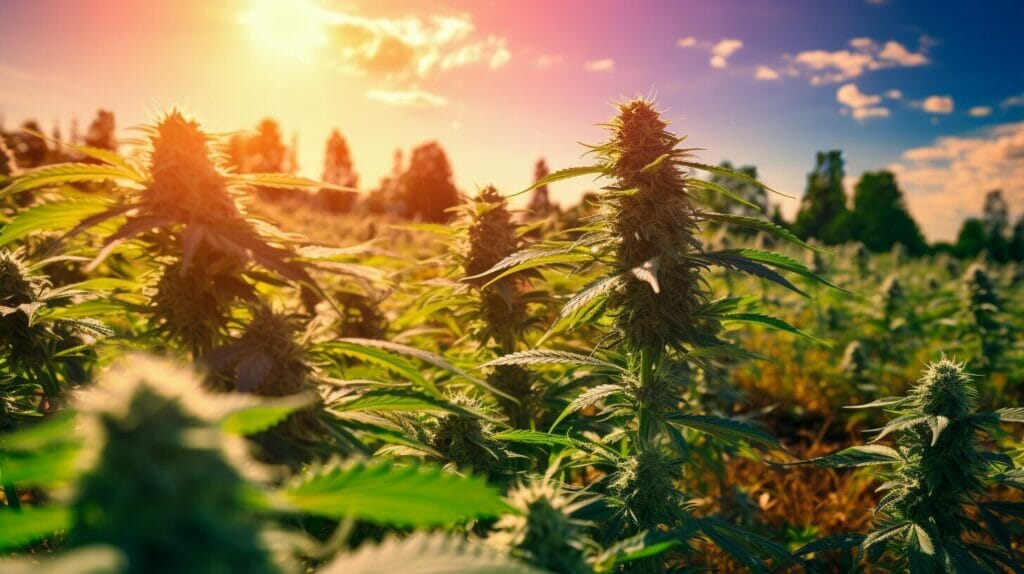
In addition to promoting sustainability, organic cannabis farming provides numerous long-term benefits for the industry as a whole. By reducing the reliance on synthetic chemicals, organic farming helps to create a healthier planet for all living organisms. It also ensures that crops are grown in a way that is compatible with nature, which ultimately leads to a more resilient and sustainable agricultural ecosystem.
Overall, organic cannabis farming provides numerous benefits that go beyond just producing a quality product. By promoting environmentally friendly farming practices, we can create a more sustainable future for the cannabis industry while also protecting the planet we call home.
Premium Quality Organic Cannabis
One of the most significant advantages of organic cannabis farming is the superior quality of the final product. Organic cultivation methods result in a purer and more natural plant, which can translate into better flavor, aroma, and overall potency.
Organic cannabis is often grown in soil that is rich in nutrients and free from synthetic fertilizers, which can create a more robust flavor profile. Additionally, organic cultivation techniques, such as natural pest control and companion planting, can help the plant develop a natural resistance to pests and diseases.
The potency of organic cannabis also tends to be higher than conventionally grown cannabis. With no chemical additives or pesticides to interfere with the plant’s natural growth process, organic cannabis can produce more potent buds. This higher potency can lead to more effective medicinal benefits, making organic cannabis an increasingly popular choice for medical patients.
Overall, the premium quality of organic cannabis is a testament to the benefits of eco-conscious cultivation methods. By promoting sustainable farming practices, organic cannabis farmers are able to produce a superior product that satisfies the discerning preferences of cannabis connoisseurs.

Benefits of Organic Cannabis Farming: Conclusion
Organic cannabis farming is more than just a trend; it is a sustainable and eco-conscious way of growing cannabis, which provides numerous benefits to both consumers and the environment. During my research, I discovered that organic cannabis farming utilizes eco-friendly practices resulting in higher quality cannabis, and it promotes sustainability and health benefits for consumers.
As the organic cannabis market continues to grow, it is essential for farmers to understand the importance of promoting environmentally friendly farming practices and sustainable cultivation methods. By doing so, we can help to ensure the continued growth and success of the organic cannabis industry, while also contributing to a more sustainable future for the cannabis industry.
Now that you understand the benefits of organic cannabis farming, get your garden started with the collection of regular, feminized, and autoflower cannabis seeds at Seeds Here Now.
FAQ
Q: What is organic cannabis farming?
A: Organic cannabis farming refers to the cultivation of cannabis using eco-friendly and sustainable practices that exclude the use of synthetic pesticides and fertilizers. It focuses on maintaining soil health, conserving water resources, and minimizing environmental impact.
Q: What are the benefits of organic cannabis farming?
A: Organic cannabis farming offers several advantages. It results in higher-quality cannabis with better flavor, aroma, and potency. It promotes sustainability, reduces environmental impact, and avoids the harmful effects of chemical pesticides. Additionally, consuming organic cannabis may have potential health benefits for individuals.
Q: How is organic cannabis farming different from conventional methods?
A: Organic cannabis farming differs from conventional methods in cultivation practices. It avoids the use of synthetic chemicals and instead relies on natural alternatives such as companion planting, natural pest control, and soil management techniques. The focus is on maintaining a healthy ecosystem and producing a purer and more natural product.
Q: What are the environmental benefits of organic cannabis farming?
A: Organic cannabis farming has several environmental benefits. It reduces the use of synthetic chemicals, minimizing water and soil pollution. It promotes biodiversity, supports healthy ecosystems, and contributes to the conservation of water resources. Additionally, it helps in reducing the carbon footprint of the cannabis industry.
Q: Are there health benefits associated with consuming organic cannabis?
A: Yes, consuming organic cannabis may have potential health benefits. Organic farming techniques and production methods result in a purer and more natural product. This can enhance the therapeutic properties of cannabis, potentially leading to better health outcomes for consumers.
Q: What are some organic cannabis farming techniques?
A: Organic cannabis farming techniques include companion planting, natural pest control methods, and soil management. These practices help maintain organic certification, promote soil health, and enhance the overall quality of the cannabis crop.
Q: How does organic cannabis farming contribute to sustainability?
A: Organic cannabis farming promotes sustainability by conserving water resources, reducing soil erosion, and minimizing the use of synthetic chemicals. It supports healthy ecosystems, promotes biodiversity, and contributes to a more environmentally friendly cannabis industry.
Q: Is organic cannabis of higher quality compared to conventional cannabis?
A: Yes, organic cannabis is often considered to be of higher quality compared to conventional cannabis. Organic farming methods result in a premium product that often boasts better flavor, aroma, and overall potency. It satisfies the preferences of cannabis connoisseurs who appreciate a superior product.
Q: What is the market and industry like for organic cannabis?
A: The market and industry for organic cannabis are growing rapidly. There is a growing demand for organic cannabis products as consumers become increasingly conscious of environmentally-friendly cultivation practices. The industry is evolving to meet this demand, with more focus on sustainable farming techniques and organic certification.
Q: Why is promoting organic cannabis farming important?
A: Promoting organic cannabis farming is important to ensure the continued growth and success of the cannabis industry. It supports sustainability, reduces environmental impact, and offers higher-quality products. Embracing eco-friendly farming practices benefits both consumers and the industry as a whole.
Suggested Articles
;)
;)
;)



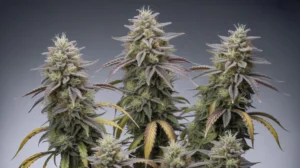
 18 Dec 2025
18 Dec 2025  5 min read
5 min read
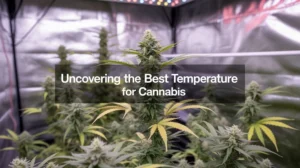
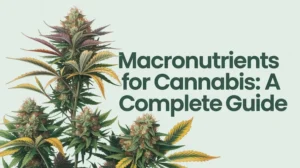
 December 13, 2023
December 13, 2023 


RESPONSES (0)
No responses yet. Be the first to respond!